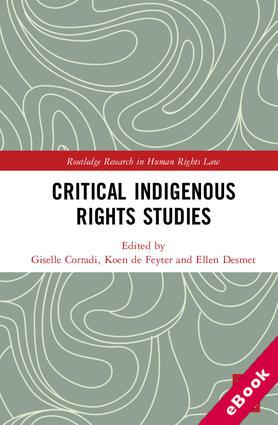
The device(s) you use to access the eBook content must be authorized with an Adobe ID before you download the product otherwise it will fail to register correctly.
For further information see https://www.wildy.com/ebook-formats
Once the order is confirmed an automated e-mail will be sent to you to allow you to download the eBook.
All eBooks are supplied firm sale and cannot be returned. If you believe there is a fault with your eBook then contact us on ebooks@wildy.com and we will help in resolving the issue. This does not affect your statutory rights.
The field of ‘critical indigenous rights studies’ is a complex one that benefits from an interdisciplinary perspective and a realist (as opposed to an idealised) approach to indigenous peoples. This book draws on sociology of law, anthropology, political sciences and legal sciences in order to address emerging issues in the study of indigenous rights and identify directions for future research.
The first part of the volume investigates how changing identities and cultures impact rights protection, analysing how policies on development and land, and processes such as migration, interrelate with the mobilisation of identities and the realisation of rights. The second part addresses how new approaches related to indigenous peoples’ rights are scrutinised as to their potential and relevance. They include addressing legal tensions from an indigenous peoples’ rights perspective, creating space for counter-narratives on international law, and designing new instruments.
Throughout the text, case studies with wide geographical scope are presented, ranging from Latin America (the book’s focus) to Egypt, Rwanda and Scandinavia.